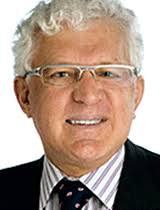How Link Group is handling industry consolidation
Link Group, the largest professional administration company for not-for-profit super funds in Australia, last week announced a solid, if not spectacular, financial result. The increasingly diversified firm provides an interesting litmus test for the global investment market.
ASX-listed Link announced that EBITDA was up 6 per cent to A$356 million but operating earnings per share were down 9 per cent. But what it calls “recurring revenue” was up 18 per cent. Without gilding the lilly, Link is having to adapt to the brave and tough new world of super funds management. Like its clients – big super funds, fund managers and listed corporates – Link is transitioning itself.
John McMurtrie, the company’s managing director, said that while the business was flattening out in the short term it will get back onto a sustainable upward trajectory fairly soon. Importantly, given its UK expansion, which has meant Link is now the largest outsourced administrator for fund managers in the world, he thinks that ‘Brexit’ will not be bad for the company.
“We were a little bit worried about some operational issues in tax havens and so forth,” he said, “But not any more. We are more concerned about the indirect issues in the UK such as a reduction in the number of IPOs.” Link is one of the world’s largest share registry services providers.
In Australia, he is on the optimistic end of the spectrum in terms of the consolidation trend. He thinks that the industry will end up with 30-40 big super funds. There are currently 55 super fund members of AIST and the consensus prediction, given APRA’s push in that direction, is that there will be only about 20 in 10-or-so years.
The other demographic shift is a reduction in member numbers, mainly due to account amalgamation. Link believes the total number of member accounts will settle at between 20-22 million, compared with more than 30 million a few years ago.
For Link, he said, this also presented an opportunity, because small and in-house administration operations, which in-effect compete with Link, were under more pressure. “Life is becoming very difficult for them,” he said.
– G.B.









